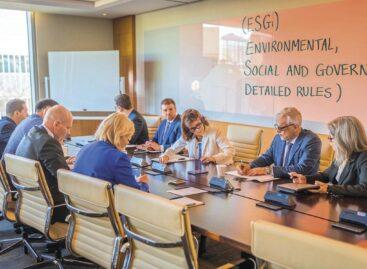Virtual is the new reality
Refillable products are more and more popular. Both retailers and brands pursue this sustainable path, e.g. recently Asda has opened four stores offering refillable products. At the same time eco-conscious brands are also busy trying to integrate their refillable options into their supply chains, in order to maximise efficiency for retailers and consumers alike. Faith in Nature has rolled out its 2.5-litre refillable bottle, after consumers had complained about the size of the 5-litre one, but still wanted to back the company’s eco-project.
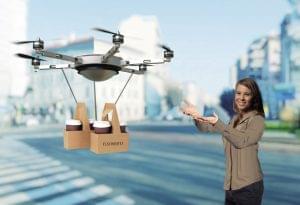
Not even the coffee is spilled
Retailers in the metaverse
The “brave new world” of Zuckerberg’s metaverse is still very new, but it already offers opportunities we wouldn’t have dreamed of earlier. It is enough to think of the fact that the shoppers are going to fill the virtual world just like they did it with the physical world. No wonder that retailers are fervently investing in digitalisation.
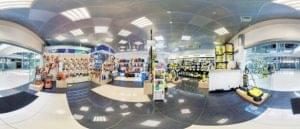
Inside a virtual store
A study by Accenture has already identified the presence of many retailers in the metaverse. This place is perfect for offering experiences to consumers and strengthening their ties with a retailer or a brand. Accenture’s survey has also found that 55% of consumers agree that our lives are going in a digital direction rather rapidly. What is more, 45% of company heads believe that the metaverse represents a breakthrough that has transformative powers.
The unreal becomes real
“Unreal” is the trend in which our environment and the companies are gradually filled up with things that are rally human-like. “Unreal” qualities are actually very real for artificial intelligence (AI), just like the data that come from us, shoppers. Retailers are investing in AI technology too, as it has become very important for them to analyse and understand all that data, so that they can make their processes and the customer experience better.
British brand Lush has recently quit social media, because they want to connect with their customers more directly. In the last few years credibility became more valuable; however, this has a different meaning in the “unreal” world: here retailers and shoppers need to sign a new social contract, in which the former authorise the latter for using synthetic data, while the latter preserve or even strengthen the trust of consumers.
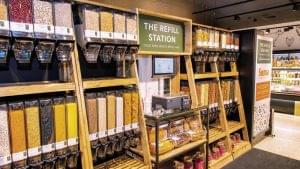
It is trendy to refill
Experimental retail and automatic delivery
While earlier companies were primarily experimenting in the domains or products and prices, today they also do it with accessibility, easy usage, online shop design, etc. For online retailers 2022 will be about how to connect with shoppers in new ways. BMW’s new virtual services make it possible for potential customers to see the inside of cars, what is more, they can even see how a given model would look parked outside their house. The last mile is the most complicated part of parcel delivery – and the most expensive as well. This is the reason why several retailers are experimenting with automatic solutions. Since 2016 Starship – they deliver using robots – has successfully delivered 1.6 million parcels, and soon the company will appear in many cities of the USA and Europe.
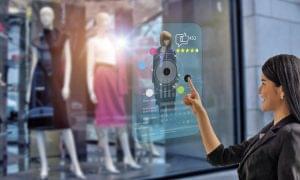
No more queuing for the fitting room
//
Related news
The majority of Hungarians spend less than 50 thousand forints on Christmas gifts, sustainability is an important aspect, but not the primary one
Gift-giving is an essential holiday tradition, but what really matters…
Read more >Lidl has published its 3rd sustainability report
Lidl Hungary’s sustainability report for the 2022/2023 business years has…
Read more >ESG – about sustainability standards, from a legal perspective
Since December 2023 several pieces of legislation have been published…
Read more >Related news
The Joy of Giving! – SPAR stores collect non-perishable food for people in need
The Hungarian Maltese Charity Service and SPAR Hungary have launched…
Read more >Technological advancements and business travel
The latest research from International Workplace Group (IWG), the leading…
Read more >K&H: a gift, but what and from which store?
When it comes to Christmas gift-giving, clothes are the most…
Read more >


